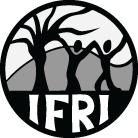Analysis of REDD+ Pilot Projects and Forest Stewardship Council Certification in Tanzania- Project Summary
This project is being conducted by five University of Michigan Masters students in the School of Natural Resources and Environment. After four months of extensive review of literature and background research in Michigan, students spent three months in Tanzania conducting field-based research. Initial research involved interviews with high-level Tanzanian and Norwegian government representatives and NGO leaders in Dar es Salaam to better understand the current and possible future developments of REDD+ planning at the national level. Following this, researchers spent six weeks conducting village level research in three rural villages in Southeastern Tanzania to supplement perspectives gained from national level policy makers. Using IFRI methodology, students facilitated focus group and household surveys in order to better understand the process and benefit sharing mechanisms of REDD+ and FSC program implementation. Forest plots assessments were also included following the IFRI data collection protocol. Currently, data is being entered into the IFRI database for analysis. Results from the study will be submitted to journals for publication.
Objective: The objective of this research project is to comparatively analyze the implementation and impacts of REDD+ pilot projects and Forest Stewardship Council certification programs on village level equity and governance structures under community based forest management in Southeastern rural Tanzania.
Specific questions included:
Who has negotiation power and is allowed to participate in the planning and implementation of REDD+ and FSC certification?
- What are the mechanisms and spaces for negotiation?
- Who has access to these mechanisms and spaces?
- How is power distributed among participant groups?
What is the allocation of costs and benefits of implementing REDD+ and FSC?
- What are the opportunity costs, implementation costs and institutional costs of implementing REDD+ and FSC?
- Who bears these costs?
- What are the categories of benefits that communities, NGOs and national government receive?
- Who receives these benefits, and in what form?
- Does benefit distribution correspond to distribution of costs (i.e. assessment of equity)?
News
IFRI Special Issue Collaboration
(17/09/2016)
FLARE Announces Keynote Speakers

